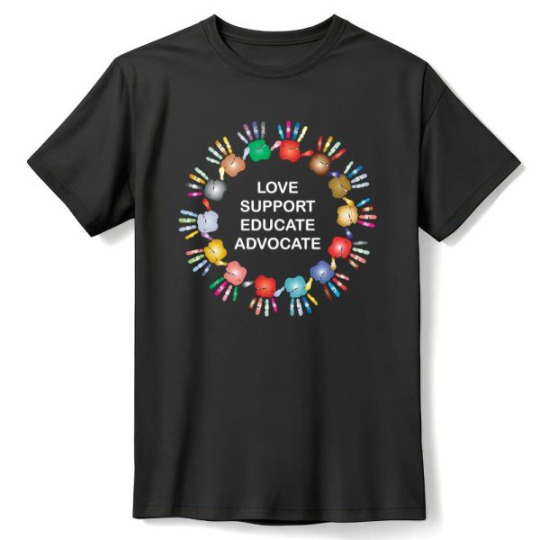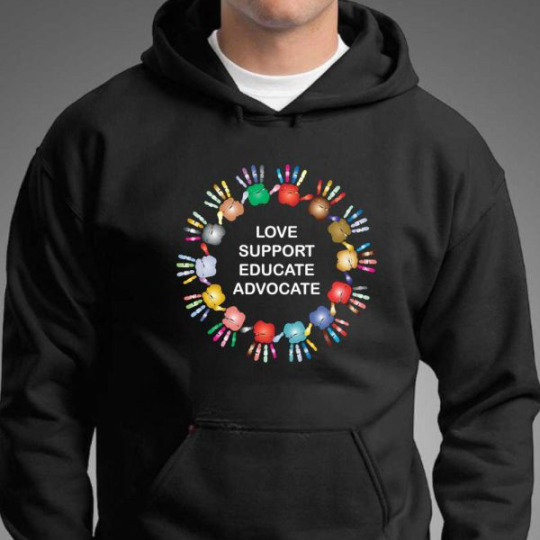#gifted education program
Explore tagged Tumblr posts
Text
Discovering Little Canada in Toronto: A Tiny World of Big Adventures!
Explore Little Canada in Toronto! Discover iconic landmarks, stunning miniatures, and interactive fun in this unique Canadian attraction. A must-visit gem!
#uglyandtraveling#travel vlog#travel blogger#travel channel#travel around the world#travel backpack#traveling vlog#ugly and traveling#travel#ugly & traveling#little canada#Little Canada 3D printing#Little Canada accessibility#Little Canada admission prices#Little Canada construction#Little Canada contact information#Little Canada COVID-19 policies#Little Canada directions#Little Canada downtown Toronto#Little Canada educational programs#Little Canada employment#Little Canada events#Little Canada exhibits#Little Canada family activities#Little Canada FAQs#Little Canada founder#Little Canada gift shop#Little Canada group tours#Little Canada history#Little Canada hours
5 notes
·
View notes
Text
Most high school mascots are alliterative but not enough high schools have the creativity or courage to make their mascot a pun.
#I would give an example but I’m not gonna dox my old high school until I live in another country#also if anyone wants me to rant about how shit the U.S. education system and the gifted program in particular is please let me know#I have Opinions
2 notes
·
View notes
Text
specialized education and gifted children programs are so fucked up I see the purpose but the execution and expectations are genuinely horrific I've yet to meet a single one of us that's doing okay besides from those who just reached their breaking point and chose to stop caring
#gifted kid burnout#It's so fucked up the emotional stress levels we're normalizing and the expectations to do the best and be the best when everyone#Has been told they're the best and special#Middle school high school college etc should be learning times yes and expose you to new things#The opportunities provided are wonderful and its really cool how many programs you can have access to#But the competition and stress shoved into a relatively short time period isn't productive for helping kids learn and try new things#Especially since they're expected to be a fully functioning adult afterwords with little to no prioritization of information#That could help with that transition#I'm very frustrated with the American education system I don't know enough about other countries education to comment on theirs#Cue rambles#ESPECIALLY NEURODIVERGENT PEOPLE OH MY GOD#I would like to say something about that but I want to do more research on that besides from me just speaking from experience and people#Around me
11 notes
·
View notes
Text
Anyone else remember when you made the transition from elementary to middle school and suddenly all the adults in your life started treating you more like a person than they ever did before, in such a way that made it glaringly obvious to you that they consider children to be subhuman? Because I do.
#children continue to be the most oppressed class#children’s rights#children are people#i’m having to educate parents on the internet about the importance of actually talking to your fucking child about decisions that directly#affect them and their life instead of consulting strangers on the internet who couldn’t possibly tell you how your specific child is#going to feel about being put in the gifted program#the only thing i can tell you is that they need to know what’s happening and they need to have a say in it
2 notes
·
View notes
Text
Cheren giving Rosa stim toys from his own collection. Augh.
#pokemashe#cheren piper#Rosa Contreras-Alba#they were gifts from alder too .#cheren was not diagnosed as a child and put in the normal program which hindered his development#and alder was the first person to recognize him actually being autistic#both getting him a proper diagnosis but also accommodating to him#including giving him stim toys#he noticed Rosa struggling at some point . gave it to her because that’s what alder did#(he wants to be a good teacher to Rosa just like Alder was and unlike his standard education growing up)#(he’s aware she’s autistic just like him)#(emulating the things he did for Rosa)
4 notes
·
View notes
Text
I did not come out of the womb thinking I was special and better than everyone else. Adults around me told me that I was and burned it into my brain that I was going to achieve more than everyone around me because of “inherent ability”. When I instead ended up as a gay, trans, disabled and mentally ill community college attendee, I was perceived as having wasted my talent when in reality, I was just a weirdly perceptive child. I was never better than anyone else. Putting that much pressure on a 8 year old was fucking weird
ohhhhh I get it now. the "gifted kid" discourse exists because people see it fundamentally as a sign of Privilege and not as a largely meaningless category that puffs up weird children before setting them up for the same unremarkable lives as everyone else; thus they interpret people going "the educational system gave me false expectations before ultimately abandoning me to the same heartless world as everyone else" as "why am I, The Main Character, not getting everything I ever wanted."
#why the fuck do we even label children as gifted if we don’t find education enough for it to mean anything anyway????#especially when in reality children not labeled as gifted actually need more support#but instead we’re putting money into putting gifted kids into a room to do puzzles#at this point I’m convinced that gifted programs are state funded psychological experiments
70K notes
·
View notes
Text

Thinkit, plan it. At Women Financial Power, we offer retirement planning, 403(b) plans, rollovers and annuities; Life insurance, disability, long term care planning, health including Medicare.
Email us for your free: * Rollover guide * Retirement Planning guide or * Insurance Guide
#Waldorf#virtual school#tutoring services#Test Prep#STEM Education#sports programs#special education#science education#Public School#private school#Online Learning#Montessori#military school#middle school#Math Tutoring#literacy programs#language immersion#IB program#homeschooling#high school#gifted education#Extracurricular Activities#Elementary School#Educational Technology#Early Childhood Education#dual enrollment#college prep#charter school#boarding school#arts education
0 notes
Text
just went down a rabbit hole going through my baby book and scrapbooks and other random stuff from my childhood and tell me why congressman david schweikert sent me a letter when i was eleven for “commendation of my work within arizona”… sir i was eleven what work did i do
#it was like a presidential education program or something idk but there was a certificate signed by him and another one signed by obama??#but like so funny and odd lmao he literally said in the letter ‘if you’re ever in need of assistance do not hesitate to reach out’ hello??#like i was literally ELEVEN YEARS OLD when would i ever be reaching out to my congressman for any type of assistance#just gifted kid things i guess#lj.txt
0 notes
Text
Sick of this shit
#i want to kms violently in front of the people who admitted her into those fucking magnet programs and not me#I want them to admit it at least I’m tired of being gaslit by the entire education system#I’m not as smart as her. you decided she was gifted and I’m not#if there are gifted kids then there are non gifted kids#and clearly gifted kids at least to you are superior#acedemically intelligently socially it doesn’t matter you decided they’re superior#and I’m inferior#and you left me to come to that conclusion on my own#but when I confront you then it’s all ‘ohh your smart ohhh don’t compare yourself to others’#like shut the fuck up. YOU created that comparison when you came up with the concept of a gifted program that only some people get in#and further more when you set me back in other classes#you made that comparison first and now you act like it doesn’t matter#so while she gets every opportunity handed to her you stick me in average or below level classes#you could at least be honest and tell me I’m retarded#we both know it’s true.#asking for a rope for Christmas im not spending another year on an earth where she’s happy#vent
0 notes
Text
The Success of Dolly Parton Books for Kids
The Success of Dolly Parton Books for Kids
Dolly Parton Imagination Library Australia, a renowned initiative dedicated to early childhood literacy, continues to make waves across Australia. This visionary book gifting program, founded by the country music legend Dolly Parton, has been a beacon of hope for fostering literacy skills and igniting imaginations in children from all walks of life.
A Lifelong Love of Reading Begins Early
The core of Dolly Parton's Imagination Library lies in its commitment to early intervention literacy. By providing children with a curated selection of books from birth until they reach age five, the program ensures that every child has access to engaging early childhood education materials. This early exposure to reading helps to develop essential language skills, expand vocabulary, and spark creativity, creating a solid foundation for academic achievement and personal growth.
A Vision for Literacy
Dolly Parton Books Australia is driven by a powerful vision: to make high-quality, age-appropriate books accessible to every child. By delivering these books directly to the homes of young readers, the program removes barriers to access and ensures that every child, regardless of their background, has the opportunity to engage with the magic of reading, transforming lives and laying the foundation for a brighter, more literate future.
Empowering Families and Communities
One of the most impactful aspects of the Dolly Parton Books for Kids is its ability to unite families, educators, and community organisations in support of early childhood literacy. This collaborative approach not only enhances the reach of the initiative but also strengthens the bonds within communities, fostering a culture that values and celebrates reading.
Create Lasting Change
The impact of Dolly Parton Books Australia extends far beyond its immediate reach. By investing in early childhood literacy, the program is laying the groundwork for a brighter future where every child has the opportunity to succeed. As more communities embrace its mission, the ripple effects of this initiative will continue to shape the landscape of literacy, ensuring that future generations are equipped with the tools they need to lead, innovate, and thrive.
Dolly Parton Imagination Library Australia stands as a testament to the power of literacy development in the early years and the profound difference it can make. By fostering a love of reading from an early age, the program is not only enriching individual lives but also building a foundation for a more literate and empowered society.
#Dolly Parton Imagination Library Australia#early childhood education materials#book gifting program#early intervention literacy
0 notes
Text
Upasana: Bridging Job Opportunities for Female Graduates
Upasana is dedicated to empowering female graduates by bridging the gap to job opportunities. Our mission is to fulfill the dreams of women through impactful programs aimed at Women Empowerment.

1 note
·
View note
Text
Tee – Uniting Hands for Love: A Powerful Symbol of Togetherness
The humble tee shirt becomes a powerful symbol of unity and compassion in the "Tee - Uniting Hands for Love" concept. This initiative transforms a simple garment into a canvas for human connection, bringing people together across divides to celebrate love in all its forms.

Buy now:19.95$
Imagine a tee adorned with an array of diverse hands, each unique in size, shape, and color, intertwining to form a heart. This design serves as a visual metaphor for the beauty of our differences coming together in harmony. The tee becomes more than just clothing; it's a wearable statement of inclusivity and acceptance.
Participants in this movement don these specially designed shirts, creating a ripple effect of positivity wherever they go. The tee sparks conversations, breaks down barriers, and encourages others to join in the celebration of universal love. It becomes a catalyst for community events, fundraisers, and social media campaigns, all centered around the theme of unity.

Buy now
The "Tee - Uniting Hands for Love" concept also extends beyond fashion. It inspires art projects, murals, and digital content, all featuring the iconic hand-heart motif. Schools adopt the symbol for anti-bullying programs, while corporations incorporate it into diversity initiatives.
This simple tee shirt evolves into a global emblem of hope, reminding us that when we join hands - literally and figuratively - we can create a world overflowing with love and understanding.

Buy now
Support, education, and awareness form a powerful triad in addressing social issues and fostering positive change. This interconnected approach begins with raising awareness, shining a light on often overlooked problems or misunderstood topics. Through various channels - media campaigns, community events, and digital platforms - information reaches a wider audience, sparking interest and concern.
Education follows, providing in-depth knowledge and context. It equips individuals with facts, statistics, and historical background, enabling them to understand the complexities of the issue at hand. This informed perspective cultivates empathy and motivates action.

Buy now
Support completes the circle, offering practical assistance, resources, and encouragement to those affected by the issue and those working to address it. This can take many forms, from financial aid and counseling services to volunteer programs and advocacy groups.
Together, these elements create a comprehensive strategy for tackling challenges, promoting understanding, and driving meaningful progress. By combining awareness, education, and support, communities can unite to effect lasting change and build a more informed, compassionate society.
#Tee – Uniting Hands for Love#Symbol of Unity#Compassion and Love Shirt#Inclusive Heart Design#High-Quality Comfort Tee#Charity Event Apparel#Support & Education Awareness Programs#Mental Health Support#Educational Resources#Community Support Services#View all AUTISM GIFTS products: https://zizzlez.com/trending-topics/hobbies/autism-spectrum-awareness-month/#All products of the store: https://zizzlez.com/
0 notes
Text
I've seen people say that the Gifted Programs and the Special Education Programs in schools are on the same spectrum
I would love to hear from people who were in these programs and those who were in neither and their perception of the students/children in them....mainly because being in the gifted, normal, or special classes created a really big divide and gap between students
#I only have the perspective of someone who was in QUEST and other gifted programs and then eventual Honor and AP classes#so my view is limited about what the Specidla Education program and classes were like
0 notes
Text
The young men in our study were between the ages of 14 and 17 from families with low incomes and lived in high-crime neighborhoods. They were split into three groups. The first group received money on reloadable gift cards every week. The second group was offered an after-school program and received money on a gift card as long as they attended the first few sessions. The third group served as a comparison or “control,” and participants were able to take advantage of the programming after the completion of the study. When asked about how they spent the money they had received, participants reported a variety of expenses. Some spent it on personal items and entertainment like clothes, video games, and activities such as amusement parks. Others reported using the money for necessities, such as helping out a parent with groceries or fixing a car. Some participants reported that they saved the money to reach goals such as purchasing a car or helping their family move out of their neighborhood and purchase a house. Receiving the cash transfer alone led to an increase in healthy behaviors. Participants who received the cash transfer were less likely than the control group to do things like drink alcohol, use marijuana, take prescription medication without a prescription, be in a physical fight, carry a weapon, or use a vapor product. Some participants said they felt the extra money helped them to perform better in school by allowing them to buy supplies, and others felt that the cash alone helped reduce crime. We also found that the cash transfer plus programming improved the financial health of participants, which may be because the after-school programming included financial education. Beyond the benefits of the cash, the young men who were offered and attended the after-school program noted that having a safe, neutral space to go after school helped them stay away from the violence in their neighborhoods.
3K notes
·
View notes
Text
With the sudden collapse of the Soviet Union in the early 1990s, many of the former empire's resources were sold off to the highest bidder, and their $14 billion space shuttle program was no exception.
Seeking to recoup some of that eyewatering spend, in 1998, the "Buran" (Russia's answer to the American Space Shuttle) was offered up for sale on eBay for $10 million.
No serious offers were received - with most people assuming the listing to be a joke, until the New York Post confirmed the sale, with Russian authorities stating they "actually have two" if anyone is interested.

(Pictured: A later auction of a smaller scale Buran in 2005)
Sensing an opportunity, a group of Aussie entrepreneurs including Australia's first astronaut and the lawyer for Prime Minister Paul Keating offer to lease the shuttle from Russia, to put it on display in Australia during the Sydney Olympics.
After gaining permission from the Kremlin for the lease, in 1999 the Russian military briefly stops bombing Chechnya in order to dismantle the Buran, and it is placed on a barge to be shipped to Sydney on the (soon to be infamous for other reasons) Tampa shipping vessel at a cost of $5 million.

Once in Sydney, after a disastrous few months on display where crowds failed to flock to the shuttle exhibition featuring such compelling educational offerings as "activities is to assist in the development of issues of nutrition and hygiene at home" (an actual quote from their website) - the leasing company declared bankruptcy and washed their hands of the space shuttle completely.

The Buran Gift shop where you could buy soviet space ship themed football jerseys, in case you needed one of those
One of four people listed on the lease, described as a business partner of the Prime Minister, also claims he never knew he was a director of the company, which went on to cause a lot more problems.
This whole debacle presented a slight issue for the cash strapped Russian authorities, who had now only been paid $100,000 for the 9 year lease of the shuttle instead of the $600,000 they were owed. Eventually the decision was made to abandon the once $1 billion Soviet pride and joy in a Sydney carpark, where it resided for a year under a small tarpaulin.

Failed attempts to be rid of the shuttle included a 12 day auction hosted by an LA radio station, where listeners were offered the chance to buy the shuttle for $6 million, however all bids turned out to be pranks and the shuttle remained.
Multiple attempts were also made to sell the shuttle to Tom Cruise, with the exacerbated movie star's representatives repeatedly telling the insistent traders that he was not interested in owning a Russian spaceship.
Eventually a Singaporean group dismantled the shuttle and shipped it overseas, however Russian authorities soon reported they once again had been failed to be paid for the lease. Singaporean representatives responded that they definitely had paid for the shuttle, and that they simply couldn't remember when or how much was paid.
Representing the Russian government, Lawyer Suhaila Turani told the Wall Street Journal “I feel sorry for the Russians. They’re good in space, but they’re very naive in business.”
For a time the shuttle was abandoned in the storage yard of event company Pico, with the company owner telling the Wall Street Journal "I just want this thing out of my life" after three years of being stuck with it.
A few years later the shuttle was found by German journalists dismantled in a junkyard, and it was then bought and shipped to Germany to be put on display a museum, so all's well that ends well (except they dropped it from a crane while trying to set it up, but it polished up okay).

7K notes
·
View notes
Text
When I was 12 my teacher let me pick any topic in the entire world to research and present and I chose abortion.
Anyway this is just to say that Ms. Nelson was the best teacher I ever had and allowed free thought and expression. And how sad it is that if I was 12 now, and she let me do that project, she’d lose her job.
And to say that as a middle schooler I had access to better, more reliable resources to learn about reproductive rights and health than I do as an adult.
#been thinking a lot about GOAL lately#(just another gifted program in a different font)#it definitely had its issues and even caused some problems#but it also allowed for a lot of creativity and gave time and space to learn about things we actually cared about#and I’m feeling some type of way about choosing to leave education myself
0 notes